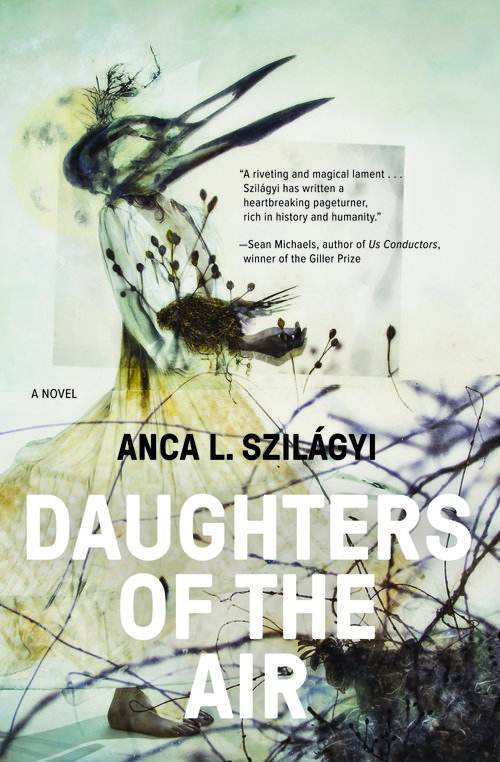
A Conversation With Anca L. Szilagyi
I first encountered this period via Anne Carson’s novel-in-verse Autobiography of Red. I was troubled by the brief, painful mention of the disappearances and dug into independent research. The more I read, the more the Dirty War resembled the Holocaust. I was trying to understand how such nightmares can recur and the psychology of people turning a blind eye to violent repression.
YZM: Do you feel the themes of the novel are in any way related to those in the story that won our fiction contest?
ALS: Yes, absolutely. Daughters of the Air explores the Holocaust obliquely, in another time and place, whereas “Street of the Deported” shows life immediately before and after the Shoah. Both stories are about families torn apart by traumatic moments in history; both follow young female protagonists struggling to break through and survive.
YZM: Your bio says that you’re Brooklyn bred; what took you to Seattle?
ALS: After several years of inching through a first draft of Daughters of the Air, I thought an MFA might help me. The University of Washington offered me funding, so my husband and I made the cross-country move. We ended up staying after I graduated. There’s a lot we miss about Brooklyn, but Seattle is a great city for readers and writers, and it’s a bit more affordable than New York.
YZM: You write for what seems like a wide range of publications—Gastronomica and the Fairy Tale Review are just two of them. Care to comment?
I’m an omnivorous reader and writer! But I particularly love food and fairy tales. Food ends up in most of my fiction, such as the poppy seed roulade and linden tea in “Street of the Deported.” Daughters of the Air draws on Hans Christian Andersen’s “The Little Mermaid” as well as the myths of Orpheus and Icarus. My story in Gastronomica is actually a fairy tale about a woman who falls in love with Seattle’s Pike Place Market—and marries it.
YZM: What’s a question you wished I’d asked?
ALS: “Tell me more about your obsession with food.” Why, happily! I am slowly working my way through a series of lyric essays exploring culture and memory through food, such as on ham and my sense of Jewishness and plums and Romania. One of my favorite activities is scouring old and rare cookbooks for narrative gold.
One comment on “A Conversation With Anca L. Szilagyi”
Comments are closed.




The wound of the Holocaust will never heal and it seems every generation will feel the pain in a different way, in a different place. Marvelous that this theme won and of course superb writing!